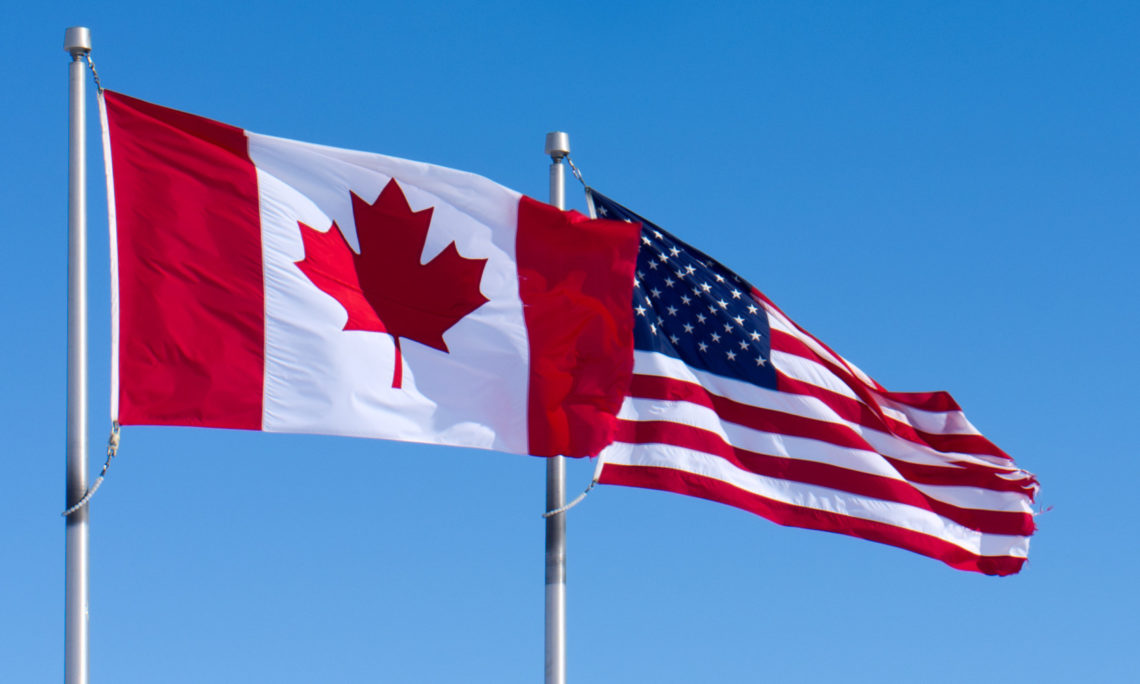We spent another pleasant day in Halifax, starting with workouts in the morning, a visit to the famous Alexander Keith brewery, dinner with Jon and Cheri at the the Bicycle Thief, one of Halifax’s most highly rated restaurants, a walk along the waterfront boardwalk, capped off by by a drink made by mixologists in a 1920s-style speakeasy.
A while back, we shared observations about differences between European and Canadian French. This time, we’d like to share differences between American and Canadian English. The following is based on first-hand observation and examples borrowed from articles published by babbel.com and grammerly.com.
Both countries belong to the North American continent. For purposes of this post, we will refer to English spoken in the United States as ‘American’. It’s an unfortunate ambiguity that’s commonly used, but when was the last time you heard somebody refer to ‘United Statesian’ English?
We recognize that there are many regional variations in both countries. This discussion therefore uses some generalizations and exaggerations for emphasis. We hope not to offend anyone and apologize if we do.
The English of the two countries is very close but there are subtle differences in spelling, pronunciation, and vocabulary.
Spelling
In Canadian English, words derived from French are spelled the British way, such as ‘harbour’ and ‘theatre’, whereas in American English they are ‘harbor’ and ‘theater.’ Canadian English, like British English, uses double consonants when adding a suffix, such as ‘travelling’ and ‘marvellous’, as opposed to the single consonants in American English, such as ‘traveling’ and ‘marvelous’.
Words from other origins, such as Greek, are spelled the same in Canada and the USA, such as ‘realize’ and ‘recognize’ in contrast to the British ‘realise’ and ‘recognise’.
Canadian and American English also share spelling of modern words such as ‘tire’, ‘curb’ and ‘aluminum’ whereas British English prefers ‘tyre’, ‘kerb’ and ‘aluminium’.
Pronunciation
American and Canadian English pronunciation is very similar with some variation in vowels.
One notable example is the short ‘o’ sound. The Canadian pronunciation of ‘cot’, ‘stock’ and ‘nod’ sounds phonetically to Americans more like ‘caught’, ‘stalk’ and ‘gnawed’. To Canadians, the American pronunciation sounds like, ‘cat’, ‘stack’ and ‘nad’.
Canadians are stereotypically polite and considerate to each other, often using the word ‘sorry’, which sounds phonetically to Americans more like ‘sore-ree’. The American pronunciation sounds to Canadians more like ‘sarry’.
Another is the ‘ou’ vowel combination. The Canadian pronunciation of ‘out’ and ‘about’ sounds phonetically to Americans more like ‘oat’ and ‘a boat’.
Interestingly, Americans from states closest to the Canadian border, such as in the upper Midwest, tend to pronounce these vowels similarly to their Canadian neighbors.
Vocabulary
Generally, Canadian vocabulary tends to be closer to American than British vocabulary, using, for example, ‘truck’, ‘highway’ and ‘trunk’ as opposed to ‘lorry’, ‘motorway’ and ‘boot’.
There are also many uniquely Canadian expressions, such as:
- Washroom – the place you go to wash your hands (after doing other things). This is funny because the Americans prefer the euphemism ‘restroom’, even though a public toilet is the last place you’d want to go to take a nap!
- Timmies – Tim Horton’s, the ubiquitous coffee and donut shop. By the way, if you order a regular coffee at Timmies, it comes with cream and sugar. At Dunkin’s in the USA, a regular would most likely be black.
- Loonie – A one Dollar coin, no doubt from the image of a common loon on its face.
- Eh? – The overused American caricature of Canadian English. When added to the end of a sentence, it turns the statement into a question. Alternatively, it adds emphasis to a statement, such as ‘right?’ in American English, or ‘n’est-ce pas?’ in French. Examples:
- You’re going on vacation next week, eh?
- That was a great dinner, eh?
The next two days will conclude our stay in Halifax. We expect our friends Hélène and Benoît to arrive here tonight after waiting for a weather window in an anchorage further North. We’ll continue to enjoy the town, provision the boat and get ready for our journey Southwest toward Lunenburg, NS, Yarmouth, NS and eventually our overnight crossing of the Bay of Fundy into Maine in the USA.



Leave a Reply